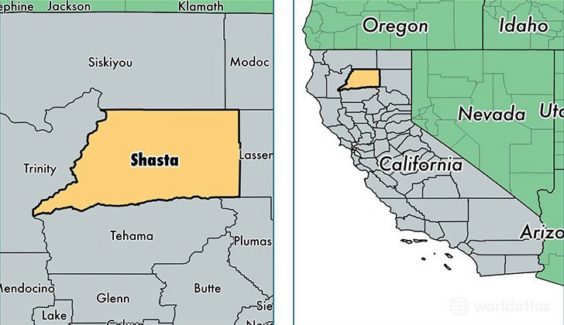The City of Redding, California, has recently adopted a cannabis ordinance permitting no more than ten retailers of adult use cannabis and/or medical cannabis businesses and an unlimited amount of commercial marijuana cultivation (indoor only), manufacturers, processors, distributors, testing laboratories, storage facilities or deliverers of cannabis. Although the Redding cannabis ordinance prohibits the new State business model of a cannabis microbusiness as well as cannabis events, it does permit cannabis licenses for distributors and marijuana testing labs which are in high demand on a State-wide basis as the July 1, 2018 deadline approaches for licensed cannabis facilities. (See Redding Cannabis Regulations.)
The United States Census Bureau estimates that the population of Redding is over 91,000 (US Census Redding) which represents about one half of the population of Shasta County (US Census Shasta County).
The City of Shasta Lake, California, population over 10,000 (US Census Shasta Lake), permitted medical marijuana dispensaries some time ago and recently expanded the regulations for other commercial cannabis businesses. (See Shasta Lake Cannabis Regulations).
If over 50% of the County has adopted some form of cannabis regulation, why isn’t the Shasta County Board of Supervisors taking steps to permit, regulate and tax commercial cannabis businesses to benefit their community?
According to a report issued by the California Growers Association released February 15, 2018, less than 25% of California’s fifty-eight counties have adopted ordinances to permit, regulate, and tax commercial cannabis activity of any kind. (See An Emerging Crisis Barriers to Entry in California Cannabis.) Without a local license, growers and other cannabis businesses are precluded from applying for a California state cannabis license.
Even the Northern California counties that have established commercial cannabis regulations, such as Humboldt, Trinity, Mendocino, and Sonoma, have incorporated limitations which continue to prevent established marijuana cultivators from obtaining a local cannabis license and thus access to the newly established legal state cannabis market.
Although one of the largest counties in Northern California, Shasta County has yet to embrace the opportunities of commercial cannabis cultivation in both employment and revenue. The Shasta county-wide unemployment rate of 5.9% is approximately 1/3 greater than the state or national average. (See Shasta County Unemployment Rate.) Already a flourishing agricultural area, permitting both indoor and outdoor marijuana cultivation would be a natural fit.
As recently as November 14, 2017, however, the Shasta County Board of Supervisors reiterated the County ban on commercial cannabis activity. (See Shasta County Cannabis Regulations.)
The neighboring counties of Lassen, Siskiyou, Modoc and Plumas, have also chosen to ban commercial cannabis businesses. Tehama County went so far as to recently prohibit the cultivation of industrial hemp as well. (See Tehama County Cannabis Regulations.)
Shasta County has a unique opportunity to adopt cutting edge cannabis regulation and taxation well in advance of neighboring counties and create a model for a thriving cannabis industry that would generate jobs and revenue for the County with little, if any, impact on current demographics.
Contact us to learn more about California state or local cannabis regulations, cannabis regulatory compliance, and cannabis litigation.

